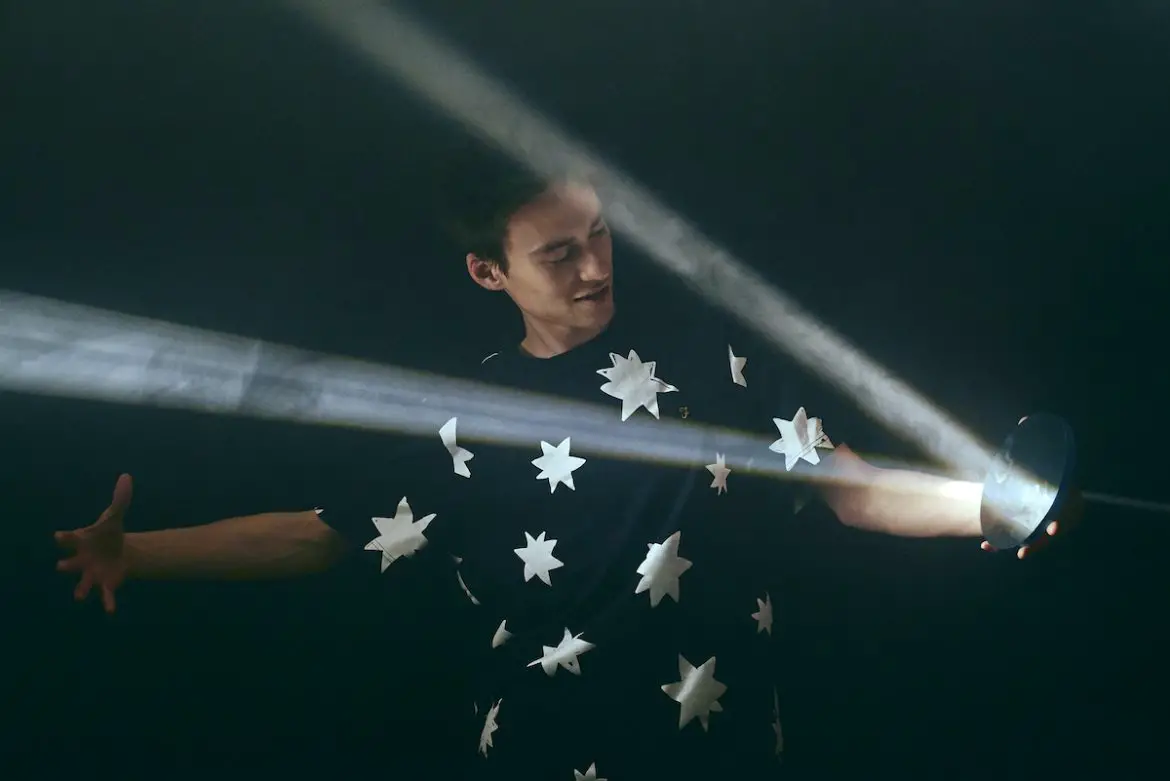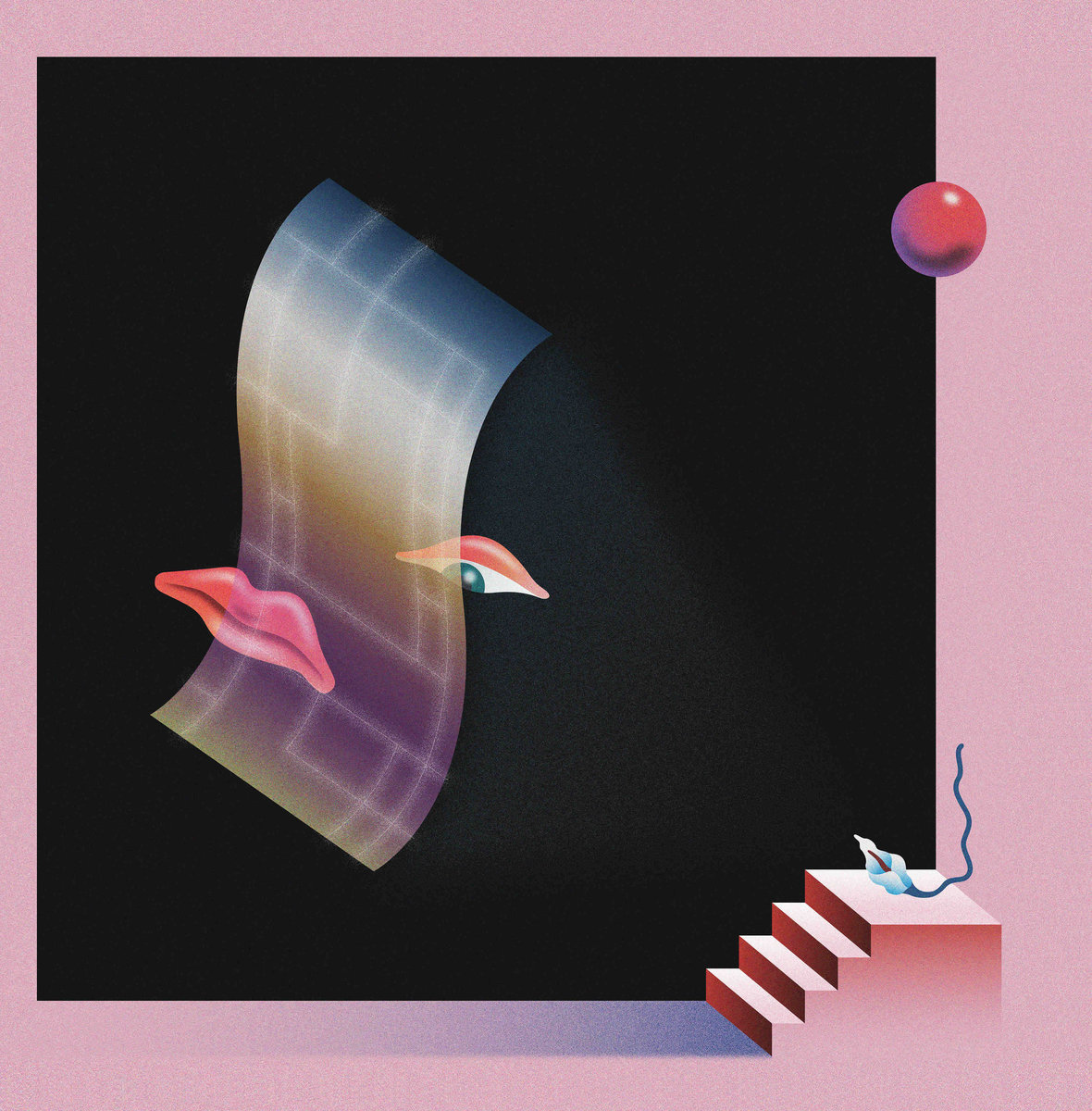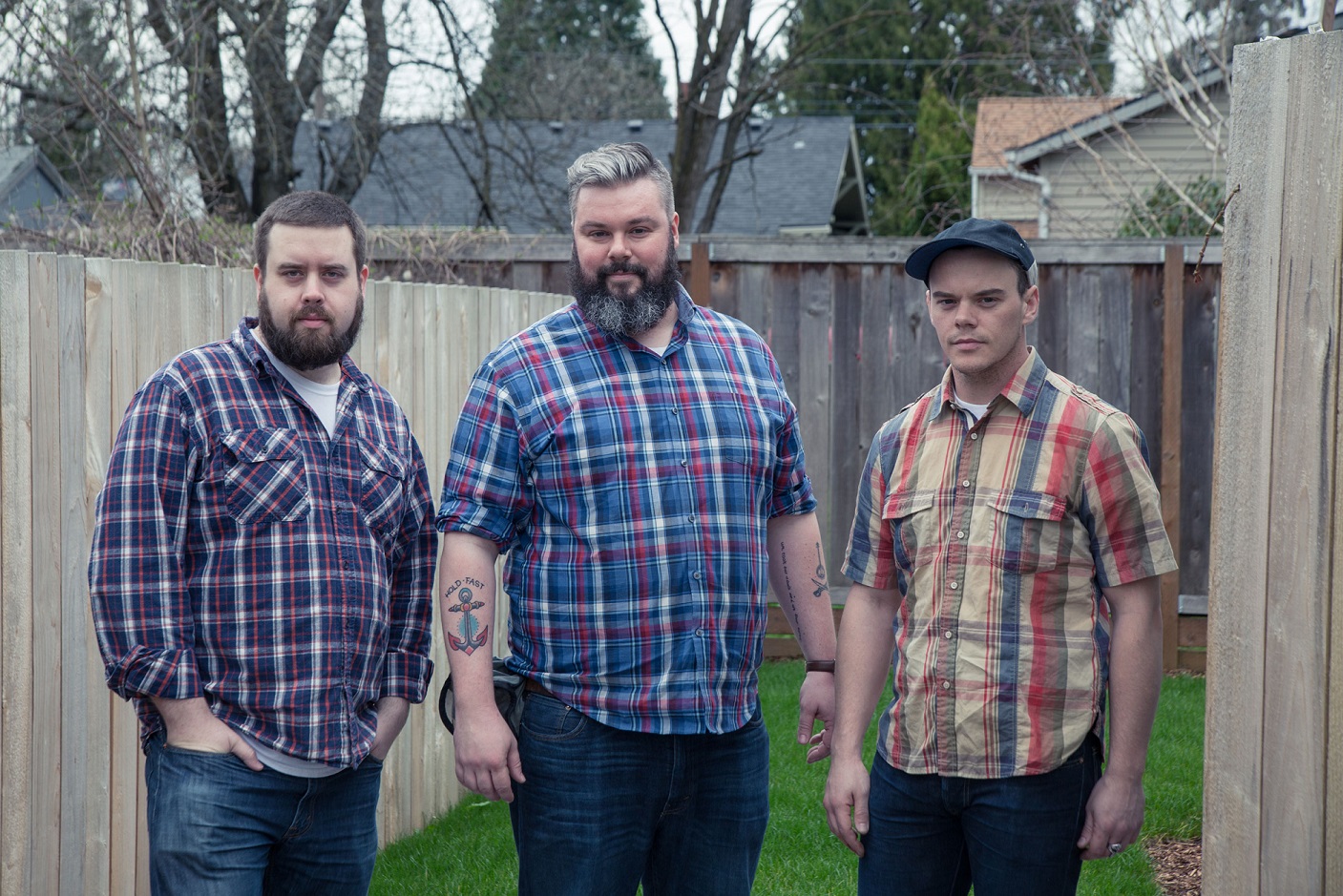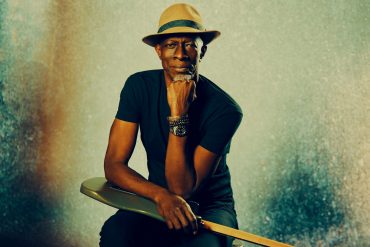Jacob Collier spoke with Atwood Magazine about the ‘Djesse’ project, his Friday Funk collaboration, and having an unconventional brain.
“Time Alone with You” – Jacob Collier ft. Daniel Caesar
‘Vol. 3’ is a kind of dance party in the night, weird dreams, all that kind of stuff.
Jacob Collier is a polymath in the truest sense of the word. Just watch his one-man-band tour videos or listen to the orchestral arrangements on Djesse Vol. 1 compared to the glitchy pop of Vol. 3. And watch with what complete joy he does them all. Djesse Vol. 3 (out August 14, 2020 via Hajanga / Interscope Records) is the latest installment in what will be a four volume set. In a year full of disaster and pain, Djesse Vol. 3 was a balm and a dance party all at once – an effort that was recognized with a Grammy nomination for Album of the Year.
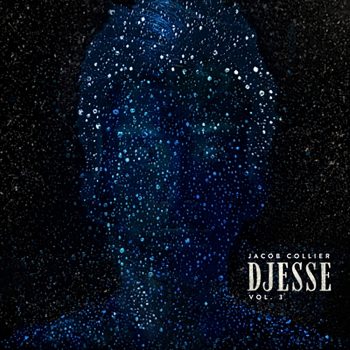
Filled with collaborations with artists like Ty Dolla $ign, T-Pain, Daniel Caesar, and Tori Kelly, the album exudes a palpable sense of shared elation. Collier, whose first album was a solo effort entitled In My Room (complete with a subdued Beach Boys cover), has explored collaboration as a way to challenge himself and create new sound worlds. He also recently participated in the inaugural For All Of Us Fridays campaign from Lenovo, collaborating on a new song with musician and Tik Tok star Nathan Davis Jr. in front of a live audience.
Often described as a “musician’s musician,” Collier doesn’t shy away from complexity in his work – but despite Vol. 3’s density, it’s an album that reaches out to the listener rather than unintentionally alienating them. Collier’s enthusiasm for what music can be and do is always tangible.
Atwood Magazine spoke with Jacob Collier about the Djesse project, his Friday Funk collaboration, and having an unconventional brain.
I use all sorts of weird materials – my room is filled with a bunch of crazy stuff that don’t really count as musical instruments, but I love using the sounds that are around me.
— —
Stream: ‘Djesse Vol. 3’ – Jacob Collier
A CONVERSATION WITH JACOB COLLIER
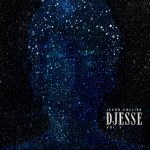
Atwood Magazine: Congratulations on the Album of The Year nomination! What was it like to receive that news?
Jacob Collier: Bananas. It was just completely out of the blue. I was sitting in this exact chair in my family home in North London, just watching the nominations come through. I saw the names come up and then suddenly it was my name. I was almost quite numb; it was like, “I can’t believe it.” I had to have a long glass of water [laughs]. It’s a crazy honor, especially as I made the album in this room on my own. There’s something really special about being recognized on a scale on that level for something that’s so close to my heart.
Did you have an arc planned for Djesse when you started this project or have you just let it take you where it has?
Jacob Collier: Both, I guess. I knew I wanted it to be this quadruple record that was a journey through all of the things that have brought me musical joy in my life, many and varied as they are – from classical music into jazz, to rock n roll and folk and funk, to soul and gospel and hip hop, to r&b and all that stuff. I wanted to forge bridges between all these different spaces, but I didn’t quite know what it would sound like until I started making it. At first, I thought, “Well, I’ll throw the paint at the wall and just see what sticks.” And then Volume 1 was finished.
Obviously, I finished and released Volume 3 this year and Volume 4 is still to come. It’s been a crazy journey. The most important thing for me with this project was the collaborations, in part because I wanted to do something with others. I’d made the first record called In My Room, and I toured around the world on my own for about two and a half years with a one man show. So it’s very important for me to get out and do something bigger than that. I made this list of dream people I wanted to make music with or work with, and what’s been crazy is just seeing that list come to life.

What is it about collaboration that you love so much? What makes the perfect collaborator to you?
Jacob Collier: I don’t know if there’s such a thing as the perfect collaborator. But I would say, as someone who’s just so used to working alone, someone coming into my space and sharing their musical world is a real chance for me to get out of my own way and do something I wouldn’t normally think to do. I get such a thrill over the challenge of writing with an idea that’s not my own. I think that when an idea is your own, you’re very precious about it. You’ll think, “It was my idea, it’s important, and this is how it is, and this is how it needs to be.” Whereas if someone else comes in and says, “This is my idea,” in some ways, you almost don’t judge it so much; you just let it be.
I think that’s quite a magical thing that happens within collaboration: it’s that it’s not all up to me to have the ideas. Oftentimes, I’ll come in with a preconception, and then their idea will blow my idea away. It will be way more exciting and more interesting. There is an amazing sense of adventure to getting out of my own way and discovering where all the different curveballs can lead you.
How did you approach the Friday Funk collaboration? I assume this was your first time working with Nathan Davis Jr.
Jacob Collier: It was actually. I hadn’t come across his work before, and I was very delighted to because he’s such a charismatic dude, such a ball of energy. His voice is just so wicked cool. Like with any other collaboration, I approached it with a super open mind. I spoke to all the guys at Lenovo about the things that were important to them and the themes that they’d been running with throughout the whole campaign, because it was a series of Friday-based events. I wanted it to be funky. I wanted it to be short and sweet. So Nathan and I got on Zoom, and we threw some stuff at the wall and saw what stuck and ran with that. It was awesome fun. I Nathan is such a joyous musician. It’s actually crazily rare to have someone who makes music from that place. A lot of the time it’s like, “I think it’s quite hip to be quite melancholic or down on stuff.” Nathan’s just got this happy go lucky spirit to him that’s so positive and so kind and so funny. And so life-giving. I think I have, in some ways, a very similar approach about music making. I think that’s what was fun to distill in this particular project.
https://forallofusfridays.com/the-friday-funk/
How did you approach this particular collaboration with it being on TikTok live?
Jacob Collier: To me, that makes it all the more exciting. I love a bit of pressure from people. I think that it’s almost like, even more of a degree of me getting out of my own way. That just means I can think on my feet, which is something I really love to do. When you’re sitting and creating something from a thoughtful place, it’s easy to think, “Oh, is this the right thing to do?” But when you’re live and doing something in front of people, and along with people in that way, it’s really wonderful just to say, “This is my idea. I’ve got to go with it.” There’s no time to doubt myself. It’s actually very good for practicing being in the present and embracing the things that come.
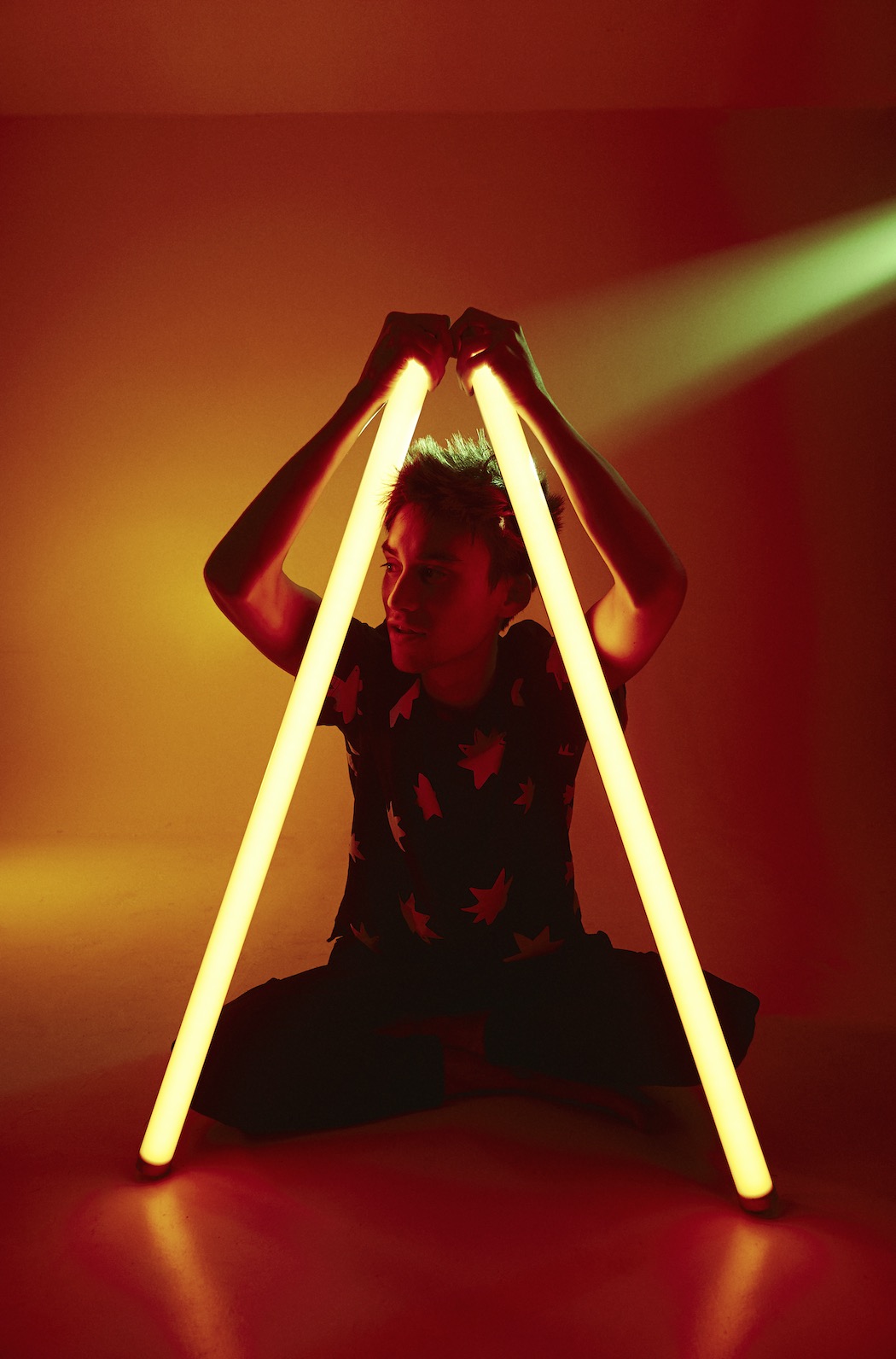
Your music has always struck me as so sensory, like you use everything around you to write. I remember you saying once that the smell of London inspires your writing.
Jacob Collier: My brain is not particularly conventional. I don’t think I have, for example, synesthesia, but I would say that a lot of my senses get mixed up in a nice, expressive way. So with language, for example: I’m good with words, and I love words. But a word is not just a word that’s in the dictionary. A word is something that says something. A word can be a sound, or a gesture, or a view on something, or an image, or a visualization. All these things to me are kind of the same expression.
You can talk in music, or words, or smells, or stories, or memories, or whatever. I think for me, when I’m sort of in the zone they amalgamate in a nice way. I don’t really have a sense of divide between what is [traditionally] appropriate to draw from as a creative person and what isn’t. I think that the bottom line is that anything in your life that gives you an idea can be used to to make more ideas and to create with. For example, London smells some funky ways and it holds a particular space in my heart, because it’s so vivid to me as a Londener. I love it. Those things end up being part of part of my life and therefore, part of my music.
You’re such a stylistic chameleon. You started in jazz, correct?
Jacob Collier: Really, I started in with chords. Chords were my first first crush, and I wouldn’t say I necessarily got them from jazz, but I will say that when I wanted to learn more about them, I turned to jazz because jazz is where that stuff is being talked about. You can go and learn rock and roll, or Indian classical music, or Bulgarian folk music, or you go and learn pop music – these are all amazing outlets. What jazz has done is figure out a science for how to think about rhythm, chords, and melodies. What I was mostly drawn to with jazz was that they would improvise with these materials. I didn’t listen to a great amount of jazz growing up, but I responded to the idea that you could sit and play and you could play based on a language that you were drawing from with chords and rhythms and melodies.
You have control over how you express an idea over time, so you can take it slow, or you can be fast, or you can be articulate, or you can be choppy, or you can be hidden or buried. Jazz was a real safe space for me to think about the materials that I liked within music. When I was learning jazz, I couldn’t wait to get out and just explore other stuff with that language. But the language lived [in jazz] when I was learning about it, so I’m very grateful that I spent time in that world.
Chords were my first first crush.
What’s the most comfortable musical place for you to be, and alternately, where do you find yourself most challenged?
Jacob Collier: I suppose I’m often quite comfortable in multi-layered sound worlds. I think there are all sorts of different ingredients which can work together to tell a story. Something that I’ve done less in my recorded work is just play the guitar or piano and sing. That’s a huge part of my musicianship growing up, but not a huge amount of my recorded work. Writing a song and not writing a production or a sound world, but just writing a song for the sake of a song, is something that’s really new to me – like newer than you would possibly imagine. That might be something I’m excited to do more of and to kind of dig into.
I’m comfortable in music that I mostly understand, but don’t quite. It’s a funny thing to say, but I’m not as comfortable because I don’t feel like I have a place to go. I think that I’m comfortable when I’m moving with an idea. If there’s a gap in my knowledge – like I don’t know what it’s going to sound like or I’ve never done it before – it’s comfortable to me, because I know that there’s progress to make, that there’s a journey to be taken. If I’m doing something that I’ve done before that’s exactly a known quantity, then that’s less comfortable to me, because I know that I know its limits. I seek those areas where I’m slightly unknowing and then I like to see what happens.
Is that how you approach production as well?
Jacob Collier: Yeah, I think so. I think I approach all of music like that. You run with an idea and you chase the sound that you’ve never heard. With Djesse Vol. 3, that was big for me. It was like, “I’ve heard a song with these chords. I’ve heard a song with a melody like this. But how can I make it sound like Jacob?” How can I make it sound like something that doesn’t remind me of something that I’ve heard before? I use all sorts of weird materials – my room is filled with a bunch of crazy stuff that don’t really count as musical instruments, but I love using the sounds that are around me. I think that they sound more interesting than just synthesizers and drum sounds. Those things are cool. But I always like to stretch the soundboard a lot.
So as someone who produces your own music, what aspect of production is most important to you?
Jacob Collier: I might say something like dimensionality in the sense that what’s easy as a producer, and what I used to do when I was getting started was to say, like, “I’ve got my drum and my high hat and my snare and my piano and my guitar and my vocal, and they’re all here on the surface of my song.” But then what I learned how to do, and I’m still learning how to do every day, is say, “Okay, so what’s in the foreground? What’s in the background?” Dimensions are added, right? You have the vocal in the front and the pianos behind. Cool. Then you think, “Well, is it static or dynamic? Is that going to change?” The truth is, and this is more about mixing, I guess, is that things can move around.
In the jazz world, we do this without thinking. You have a soloist improvising, but there’s a gap, and then the piano player responds – different voices for different amounts of space. So in the production process, I like being in control of that kind of dynamic and thinking, even in the most specific minute scenarios, “Well, just for this half a beat, this just needs to be heard.” It’s really illustrative for me, the production process, and I love exploring that kind of dimensionality. I think a lot about space, which is a different concept from dynamics, obviously. Something could be quieter, but bigger. You can express it in technical terms, but the truth is that it’s all just high resolution gestures about how I want it to feel. I think that what production gives me as an artist, and the reason I would suggest that every artist in some way produces their own music, is that those gestures are like 80% of the music. I could sit and say my song goes “blah,” and that’s my song. But you haven’t gotten started until you put those materials onto a canvas.
Would you say there’s a thesis to each volume? If so, what’s Vol. 3’s thesis?
Jacob Collier: I don’t know about a thesis, but I would say that there’s definitely a spirit to each of them. I would also say, a space to each of them in the sense that they’re all kind of expressions of the same Jacob but they’re different zones. Volume 1 is kind of like an opening. You can say it’s the dawn of the project, the morning of the project, and there’s a lot of space because it’s an orchestral record. Volume 2 is about space but smaller, so it’s cozier – there’s almost an afternoon and an evening of the thing. And then Volume 3 was kind of when the space collapsed into, say, negative space, or you could say the nighttime. It gets kind of weird, gets kind of groovy, weird sonic risks are taken, it gets soulful, r&b comes in, and it’s poppy. It’s a kind of dance party in the night, weird dreams, all that kind of stuff. Volume 4, which I still haven’t really completed, is more about the forces combining and reemerging as something else.
If there was a thesis for each it would be about space and spirit. And then genre…I don’t think about genre too much, but certain spaces lend themselves to certain genres. The highly compressed pop thing works for Volume 3, and so does the FlyLo style, crazy electronic thing. Volume 1 is, I wouldn’t say classical, but I would say that the orchestral world works for that. With Volume 2, you’ve got bossa nova, you’ve got music from Mali, you’ve got some gentle kind of 6/8 soul stuff. It all suits that space. What I suppose I planned from the start was four rooms, four spaces that I would be filling with sound. Having done that, it was kind of a surprise to see how they ended up.

Is there a writer of some kind that you feel has impacted your work in ways you wouldn’t have expected?
Jacob Collier: It’s kind of similar to what I was saying earlier on about the smell of London thing. It’s like, whatever you take in will come out. Some of my favorite books growing up were the His Dark Materials books by Philip Pullman. I wouldn’t say I wrote songs about those stories, but more the spirit with which it was written and the values it stands for – the authority being challenged, the truth being read, the worlds being cut between, the way you can forge these bridges from one space to another, and they’re all common, but they’re all kind of completely separate. The whole concept of the alethiometer completely took my breath away as a boy, because I knew that feeling. I knew the feeling of tuning into something that only I could tune into that accessed an essential truth that was invisible to others, and then expressing that. I think what a lot of the thrill and inspiration of the series meant to me as a kid would have definitely found its way into the spirit with which I’ve been creating.
Then there’s a poet from England called Spike Milligan who wrote this little book called Small Dreams of a Scorpion that had a big impact on me. He was able to describe heaviness with a kind of humor that was brisk and seeing. Again, I think when I see words that bring me into a particular space, or a kind of expression, it’s very similar to when I hear music. I could say I’ve been influenced by Stevie Wonder and Bobby McFerrin and Bach and Bartok, but I think that really, it’s people in my life, teachers in my life, my mum and my family and my friends and people who just challenge the way I think, and maybe it’s Philip Pullman. But it’s also just things that you notice. They all find their way in somehow.
It’s really illustrative for me, the production process, and I love exploring that kind of dimensionality. I think a lot about space, which is a different concept from dynamics, obviously. Something could be quieter, but bigger. You can express it in technical terms, but the truth is that it’s all just high resolution gestures about how I want it to feel.
— —
— —
:: stream/purchase Djesse Vol. 3 here ::
— — — —

Connect to Jacob Collier on
Facebook, Twitter, Instagram
Discover new music on Atwood Magazine
? © Dyan Jong
:: Stream Jacob Collier ::

